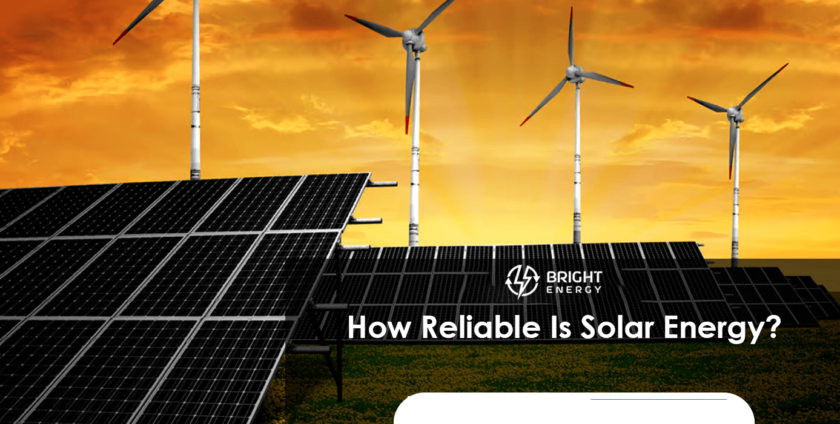
Solar energy has proven to be a reliable source of electricity, offering numerous benefits and becoming increasingly popular worldwide. While some concerns about its reliability have been raised, technological advancements and the integration of energy storage solutions have addressed many of these issues, making solar energy a dependable and sustainable option. Solar energy’s reliability stems from the fundamental principle that sunlight is abundant and predictable. The sun rises every day, providing a consistent source of energy. While solar panels do generate more electricity in direct sunlight, they can still produce power on cloudy or rainy days. Solar panels are designed to capture diffuse sunlight, meaning they can generate electricity even in areas with less intense sunlight.
How Reliable is Solar Energy?
To ensure a continuous power supply, even during periods of low or no sunlight, advancements in energy storage technology have led to the development of efficient and cost-effective battery systems. Excess solar energy generated during the day can be stored in these batteries and used during times of low sunlight or at night. This allows businesses and homeowners to have a reliable and uninterrupted power supply, even when solar energy generation is not at its peak.
Moreover, the reliability of solar energy is further enhanced when combined with other renewable energy sources. For example, wind power can complement solar energy, as wind tends to blow more strongly during the night or in cloudy conditions when solar generation is lower. By integrating multiple renewable energy sources, businesses and homeowners can achieve a more reliable and stable power supply throughout the day and in various weather conditions.
In addition to technological advancements, the longevity and durability of solar panels contribute to their reliability. Most Solar Panels come with warranties that span 20 to 25 years, during which they can continue to produce electricity. Solar panels have no moving parts, which means they are less prone to wear and tear. This durability ensures that businesses and homeowners can rely on their solar energy systems to generate electricity consistently over many years, with minimal maintenance required.
Furthermore, solar energy systems have demonstrated their reliability in various applications and environments. Utility-scale solar power plants have been successfully deployed around the world, contributing a significant portion of the electricity supply. These large-scale solar farms can generate substantial amounts of power and are integrated into the existing energy grid, providing reliable electricity to communities and industries.
Moreover, solar energy systems have been utilized in remote and off-grid locations where traditional electricity infrastructure is limited or absent. Solar-powered systems, combined with energy storage solutions, provide reliable and sustainable electricity to these areas, supporting critical functions such as healthcare facilities, schools, and telecommunications. It is important to note that while solar energy is reliable, careful planning and system design are crucial to ensure optimal performance. Factors such as location, climate, shading, and system sizing need to be considered during the installation process. Engaging professional solar energy installers with expertise in system design and installation is essential to maximize the reliability and efficiency of solar energy systems.
Solar energy has proven to be a reliable and consistent source of electricity, offering several key advantages for businesses and homeowners. Technological advancements, such as energy storage systems, have addressed concerns about intermittent sunlight and made solar energy even more dependable. Solar panels are designed to capture both direct and diffuse sunlight, ensuring electricity generation even on cloudy days. Additionally, the integration of energy storage solutions allows excess solar energy to be stored and used during periods of low sunlight or at night, ensuring a continuous power supply. The longevity and durability of solar panels, coupled with their minimal maintenance requirements, contribute to their reliability over an extended period. Moreover, the successful deployment of utility-scale solar power plants worldwide demonstrates their ability to provide reliable electricity to communities and industries. With careful planning, professional installation, and system design considerations, solar energy can offer a reliable and sustainable source of power, contributing to a greener future.
In conclusion, solar energy has demonstrated its reliability as a consistent and Sustainable Source of Electricity. Technological advancements, the integration of energy storage solutions, and the durability of solar panels have addressed concerns about its dependability. Solar energy, when combined with other renewable sources and proper system design, can provide businesses and homeowners with a reliable and continuous power supply, contributing to a greener and more sustainable future.

Leave a Reply